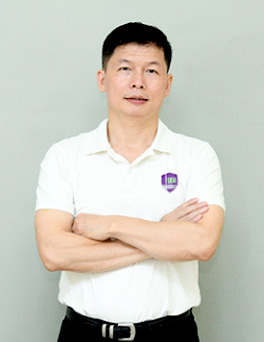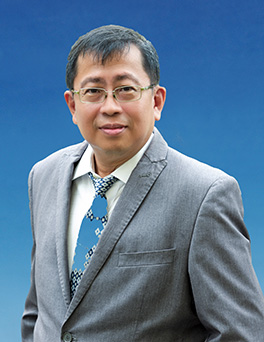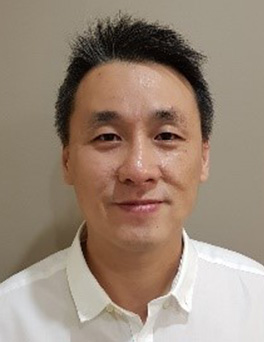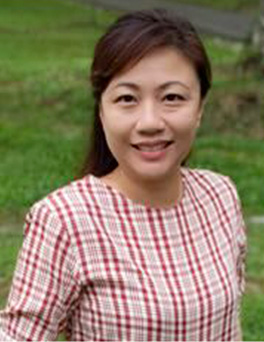S1: Instructional shifts and frameworks to enhance data and modeling literacy for diverse learners

Professor Padmanabhan Seshaiyer
Director
George Mason University
United States
Biography. Dr. Padmanabhan Seshaiyer (Padhu) is a Professor and Director at George Mason University (GMU) where he has served in multiple leadership positions including the Associate Dean for Academic Affairs, Director of the STEM Accelerator Program and Director of the Center for Outreach in Mathematics Professional Learning and Educational Technology. During the last decade, he initiated and directed a variety of research, educational and outreach programs including faculty development, post-graduate, graduate and undergraduate research, K-12 outreach, teacher professional development, and enrichment programs, to foster the interest of students and teachers in STEM education at all levels. He works with Ministries of Education, Science and Technology as well as Universities across the globe to help them transform their institutional practices. In April 2019, he was selected as one of the “Figures that Matter” for his contributions to Academia and Society and was awarded an honorary doctorate by Vrije Universiteit Brussels.
Abstract. The workshop will provide an overview of the learning principles, instructional shifts and pedagogical frameworks associated with data and modeling literacy across the curriculum. During the session, participants will be immersed in the iterative data and modeling cycles through rich data and problem solving tasks. They will also have the opportunity to explore data-driven investigations through inquiry based learning and technology tools to enhance students' understanding, engagement, and proficiency in data analysis. The session will conclude with exploring student (research) projects and associated rubrics for assessment.
Target audience. Secondary Mathematics Teachers
S2: Integration of AI into teaching and learning in general education: some hands-on activities

Professor Nguyen Chi Thanh
Dean of Faculty of Teacher Education
Vietnam National University of Education
Vietnam
Biography. Nguyen Chi Thanh is currently the Dean of Faculty of Teacher Education in Vietnam National University of Education from 2018 up to now. His academic career started as a mathematics teacher at high school in 1991-2001. After that he held his Master and PhD degrees from Grenoble University, France. And, he had a Post-Doctorate at the LDAR Research Center in University of Paris VII, France. After he came back to Vietnam, he had a post of university faculties. Also, he was invited as visiting professor for some universities such as Dalarna University (Sweden), Hiroshima University (Japan). He has been the Head of Department of Scientific and International Cooperation Affairs in 2013-2014. He has been working at some private educational system for several years as Director of Assessment and then as principal from 2015 to 2018. His research interest is about using technologies in mathematics education, teacher professional development and didactic of mathematics.
Abstract.
Part I.
AI in education: Teachers will learn about the current and potential applications of AI in education, such as personalized learning, intelligent tutoring systems, automated grading, and content curation. They should understand how AI can enhance teaching and learning experiences.
Part 2:
Integration in school mathematic curriculum: Depending on school level, teachers will receive guidance on how to integrate AI concepts and applications into their existing curriculum. This could involve developing lesson plans, creating hands-on projects, or using AI-powered educational tools and resources.
Part 3:
Hands-on experience: Practical hands-on sessions and workshops should be included in the training, allowing teachers to work with AI tools, platforms, and educational resources. This will help them gain familiarity and confidence in using AI in their classrooms.
Target audience. Secondary Mathematics Teachers
Specific requirements for workshop. Participants are strongly encouraged to bring a Windows based laptop to the workshop.
S3: Not Missing the Hearts of the Learners in Mathematics Instruction

Professor Toh Tin Lam
Mathematics and Mathematics Education AG
National Institute of Education
Nanyang Technological University
Singapore
Biography. Tin Lam TOH is an Associate Professor from the Mathematics and Mathematics Education Academic Group in the National Institute of Education. Prior to joining NIE / NTU in 2001, he was the Head of Mathematics Department in a Singapore mainstream school. He obtained his PhD on Mathematics in 2001. After that he continued with his research in mathematics and started his mathematics education research. He published in international refereed journals for both mathematics and mathematics education.
Abstract. In this workshop, strategies to engage the heart of the learners in the mathematics classroom are discussed. Exemplars are selected for topics for the entire spectrum of learners from the secondary schools. Finally, the teachers are introduced to mathematics from a communication perspective – one that focuses on persuading the learners in engaging in co-constructing the classroom discourse.
Target audience. Secondary Mathematics Teachers
S4: Engaging Diverse Learners To Learn, Do and Use Mathematics

Dr Tan Liang Soon
Principal Master Teacher
Academy of Singapore Teachers, Ministry of Education
Singapore
Biography. Dr Tan Liang Soon is a Principal Master Teacher in Mathematics at the Academy of Singapore Teachers, leading, mentoring and inspiring teachers to be caring, competent and passionate educators who live out the ethos of the profession and provide quality education experience for students. He is interested in mathematical modelling, cognitive psychology and professional learning of teachers, and regularly engages in professional development and computational thinking programmes, and research projects involving mathematical applications and modelling. He is part of the management committee for Singapore Mathematical Society and Singapore representative for the International Mathematical Modeling Challenge. He is also the Governing Board Member representing Singapore for SEAMEO Regional Centre for QITEP in Mathematics.
Abstract. In our Full Subject-Based Banding mathematics classrooms, it can be challenging for teachers to engage and motivate all learners of varying academic readiness to learn, do and use mathematics. Undergirded by Self-Determination Theory (Ryan & Deci, 2000), this workshop will engage participants in a range of low floor high ceiling math and CT tasks. Students of varying readiness levels can be actively engaged in these tasks to enhance conceptual understanding and develop critical, adaptive and inventive thinking. Design and pedagogical considerations in facilitating such learning experiences will be discussed.
Target audience. Secondary Mathematics Teachers
Specific requirements for workshop. Participants are strongly encouraged to bring a Windows based laptop to the workshop.
S5: Sorting task and the teaching of statistical graphs

Dr Chia Hui Teng
Department of Statistics and Data Science
Faculty of Science
National University of Singapore
Singapore
Biography. Dr Chia Hui Teng is a senior lecturer and the programme director for short courses at the Department of Statistics and Data Science, National University of Singapore. She teaches analytics courses to undergraduates, conducts training in data competencies for working adults and contributes to curriculum design in statistics and analytics education. She is always keen to learn how educators are using analytics for teaching and learning.
Abstract. In this workshop, participants will sort statistical graphs and discuss insights on statistical knowledge, beliefs, and habits of mind. This activity will prompt a reflection on the teaching of statistical graphs across educational levels, ranging from primary school to university and beyond.
Target audience. Secondary Mathematics Teachers